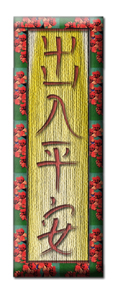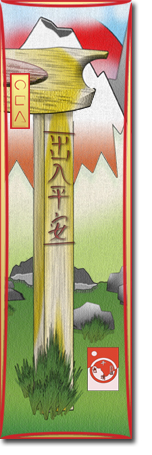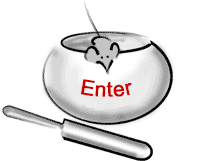On The Way: The Daily Zen Journal
True Mind
Yuan-hsien (1618-1697)
There are not many arts to Zen study; it just requires knowing your own true mind.
Now observe that within this body the physical elements combine temporarily, daily heading to extinction: where is the true mind?

The flurry of ideas and thoughts arising and passing away without constancy is not the true mind.
That which shifts and changes unstably, sometimes good, sometimes bad, is not the true mind.
That which wholly depends on external things to manifest, and is not apparent when nothing is there, is not the true mind.
The heart inside the body which cannot see itself, blind to the internal, is not the true mind.
What is unaffected by feelings outside the body, cut off from the external, is not the true mind.
Suppose you turn the light of awareness around to look within, and sense a recondite tranquility and calm oneness; do you consider this the true mind? You still do not realize that this recondite tranquility and calm oneness are due to the perceptions of the false mind: there is the subjective mind perceiving and the object perceived—so this recondite tranquility and calm oneness belong to the realm of inner states.
This is what is meant by the Heroic Progress Scripture when it says, “Inwardly keeping to recondite tranquility is still a reflection of discrimination of objects.” How could it be the true mind?
So if these are not the true mind, what is the true mind? Try to see what our true mind is, twenty-four hours a day.
Don’t try to figure it out.
Don’t try to interpret it intellectually.
Don’t try to get someone to explain it to you.
Don’t seek some other technique.
Don’t calculate how long it may take.
Don’t calculate the degree of your own strength.
Just silently pursue this inner investigation on your own:
“Ultimately, what is my own true mind?”
Empty and Quiet
People learning the way should first empty and quiet their minds. This is because the mind must be empty and quiet before it can mystically understand the subtle principle. If the mind is not emptied, it is like a pitcher full of donkey milk—how can you also fill it with lion milk? If the mind is not quiet, it is like a lamp in the wind, or like turbulent water—how can it reflect myriad forms?
Therefore learners should first stop cogitation and minimize objects of attention, making the mind empty and quiet. After that you have a basis for attaining the way.
As Te-shan said, “Just have no mind on things and no things in your mind, and you will naturally be empty and spiritual, tranquil and sublime.”
Nevertheless, you should not settle in empty quietude, sitting relaxed and untrammeled in nothingness. You must be truly attentive, investigating diligently, before you can break through the barrier of illusion and accomplish the great task. People’s forces of habit, accumulated since beginningless time, are deep seated; if you want to uproot them today, it will not be easy. You need to have a firm will constantly spurring you on.
Strive to make progress in the work, without thinking about how much time it may take. When you have practiced for a long time, you will naturally become peaceful and whole. Why seek any other particular method?
Yuan-hsien (1618-1697)





Sometimes describing what something is relies more on describing what it is not. In Vedanta and Jnana yoga neti neti, not this, not that, is part of their meditative practice which helps to discard attachment to any number of places where a practitioner can get stuck thinking they’ve finally arrived, when indeed there is more ground to cover.
One of the biggest challenges moderns deal with is sticking with anything long enough to realize the true benefits. The more we rely on devices to do our thinking at lightning speed, the less patience we have with our own investigative process that may take years.
And as language itself gets truncated into symbols and a few letters, fine nuances of words will be lost ….for instance the phrase “recondite tranquility” above.
Remembering that this is a translation, I wondered if choosing recondite more closely reflected what the original text was trying to communicate. In other words a more deep or difficult to understand sense of tranquility. The limits of any language are reflected in the fine grades of meaning that can be lost. However, the bottom line is the advice to turn the light of awareness back inside to look for the true self.
The advice is clear; we need to just stay on task and keep looking! Easy to say about something that could take a lifetime.
To see clearly,
Elana, Scribe for Daily Zen